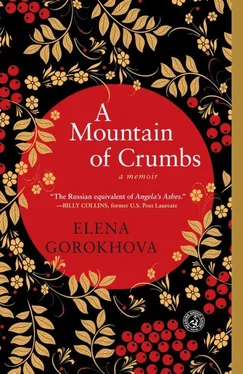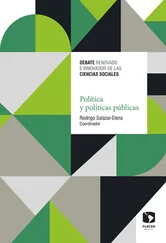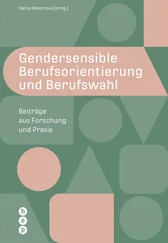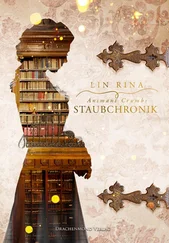Behind us is a small flock of my relatives and close friends. This is probably the smallest wedding this vast room with its soaring pre-revolutionary ceiling has ever seen: besides my mother, my sisters Marina and Galya, and my provincial aunt, there is Nina, who is six months pregnant under her tent-like dress, her husband Rudik, my aunt Mila, who arrived from Minsk a day earlier, and behind her, as if hiding from the gaze of my family, Marina’s Gris in a navy suit.
Each sentence of the speech, which is delivered with grave pathos worthy of a Party Congress plenary, echoes in the crystal drops of a bronze chandelier, the only piece in this room untouched by the sure hand of Soviet design. The crystal drops click faintly, then fade to silence as the woman ends her speech and invites us to join her on the podium for the ring exchange and paper signing.
As I walk across the room, the polyester dress clings to my legs, making the sound New Year’s Bengal fireworks make, the spitting sound I’m sure everyone in this room can hear. The woman motions in the direction of a red velvet banner, hammer and sickle embroidered in gold thread. On the wall above the banner a sign reads, “Forward, toward the victory of communism!” The exclamation mark has partially come off and is hanging at an angle, like a collapsing drunk. She shows us to the place on the podium where she’s installed a box with the rings—the harvest of my trip to a special store where every citizen-to-be-married can buy two rings made of real gold with written proof from the Acts of Marriage Palace.
“You can exchange the rings,” the woman commands, and Robert picks up the smaller gold band. As I extend my right hand, he suddenly freezes and just stands there, making me freeze, too, making me instantly think that he has changed his mind and come to his senses.
“Which hand?” he whispers.
“The right one,” I whisper back, bewildered. What kind of question is this? Everyone wears a wedding ring on the right hand—everyone who could get a written proof from the Acts of Marriage Palace to buy one.
He pushes the ring up my finger and extends his right hand for me. Then we all file out of the grand wedding room into a less grand corridor where Nina’s husband, Rudik, is already pouring into glasses the two bottles of champagne included in the ceremony. I down my glass and someone else’s. Nina comes over and embraces me. Instead of the usual perfume, there is a new smell around her, a scent of ironed laundry and freshly made soup. “Good for you,” she says as her big stomach presses into my dress. “Congratulations.”
Then a photographer appears, herding us all onto the front stairway so he can arrange us on different levels according to the guests’ importance, as if we were coming down the marble steps. Robert and I are ordered to stand next to the carved banister, my family behind us, my friends above on the upstairs landing. The photographer, a short man in a wrinkled suit, runs between our group and the camera, perspiring, yelling instructions, pressing the air between his palms to tell us to stand closer.
I am grateful for all this commotion. I’m glad my aunt is lamenting the empty champagne bottles and not my failure to marry one of “our Russian fellows.” I’m glad my mother is worrying about the photo album and not about my leaving. I squeeze Robert’s hand as my aunt stretches her arms out to grab him by the shoulders and kiss him on the cheeks three times, a good Russian custom she is now bestowing on an undeserving foreigner. No matter what she thinks of American apartheid or of Robert, he is now family, and she has no choice but to apply to him the same generosity she applies to any in-law, in spite of his curly Jewish hair and his watch that sports the incomprehensible word “Seiko.”
At home, the refrigerator is packed with meat stew and a dozen salads. “We’re going in a taxi,” says my mother, pointing to two cabs idling by the entrance. She would prefer a white Volga provided by the Acts of Marriage Palace—two intertwined golden rings on the roof and a doll in a white dress on the hood—but that was where I drew the line.
“Where is your coat?” asks my mother with a frown. “You’ll get cold and get sick.” I don’t know where my coat is, just as I don’t know what they’ve done with my marriage certificate and my stamped passport, which are now much more crucial to my life than coats or any other warm things. Across the street, below the granite embankment, the zinc waters of the Neva churn around the stone pillars buttressing the Liteiny Bridge, the last chunks of ice dipping and rising in their flow like huge bobbins on invisible fishing lines. A gust of wind knifes in from the river; my mother, I reluctantly admit, was right about the coat.
In the backseat of the cab, Robert and I stare at our ringed hands. “In America it’s the left one,” he says, making me feel silly about the moment on the podium. “I wonder what that woman would’ve done if we’d put the rings on our left hands.”
Only someone who wasn’t born here could think of such a bizarre thing, such a deliberate flaunting of rules. But since I know we have different brains and Robert cannot understand how impossible this thought would be to any of us here, I pretend I am considering the option. “She’d probably say that as long as you are on Soviet soil, you must do things the Soviet way. The right way, you know,” I add and skew my eyes to see Robert’s reaction. “The right-handed way,” I say and we both giggle.
I look out the window at the façades fringed in slushy snow, at the yellow building with white columns, the railroad ticket office, and think of what happened here just a few days before. I know Robert would appreciate this story, a uniquely Russian scene that I describe to him in Russian. At around one in the afternoon, after I’d been standing in line for an hour to buy Aunt Mila a train ticket back to Minsk, two ticket sellers simultaneously barricaded their windows with handwritten signs, the word “lunch” scribbled on cardboard in purple indelible pencil. In front of me, an African man in a sheepskin coat—a foreign student from one of Leningrad’s schools—politely suggested that shutting two out of the three open windows for lunch when the queue curled out the front door might not be the most efficient way to serve the people. “They’re wasting their time in line instead of contributing to the society and the Five-Year Plan,” he said quietly, with a serious face, using correct, docile grammar. The crowd grew silent, a sea of white around a single dark face. Then one of the ticket-sellers shoved the “lunch” sign aside and leaned out of the window, her polyester bosom hanging over the counter. “We taught you Russian,” she barked, glaring at the African, stressing every word as if she were reading Lenin’s decree—a glare of condemnation for his well-fitting coat, for his quiet voice, for his otherness. “We taught you Russian, so now you shut up!”
I wiggle closer to Robert on the scratchy taxi seat. “So now you shut up,” I whisper into his ear, and he puts his arm around my shoulders. I taught him about Russia, and he gave me the power to leave it. He smells of the blue shampoo he brought with him, a cold, antiseptic smell. He smells of America and a different life.
I AM ON A SECOND-FLOOR landing of the philology department, in the “philodrome”—a place to meet, smoke, and gossip. The gossip nowadays is about me: a temporary instructor and a possible graduate school candidate who has married a capitalist and is leaving for America.
After the wedding, three weeks of paper collection have finally produced a complete package accepted by the visa department, and now I’ll have to wait for my exit visa. My work record has been copied from a shelf in the university archive and notarized, my Leningrad residency rescinded, permission to leave signed by my mother, and my Komsomol membership card safely stowed away in a safe in case I decide to come back and reenter the ranks. At home, the talk about these red-tape hurdles and surly clerks allows me to avoid the talk about leaving.
Читать дальше












